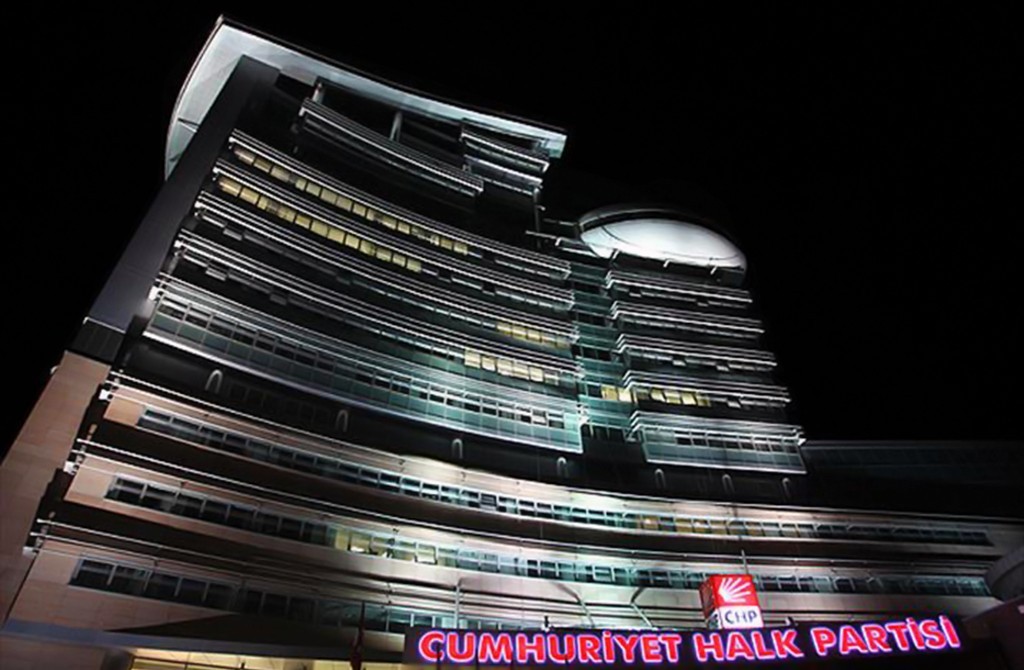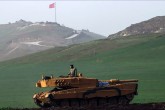The political debate in Turkey keeps heating up as electoral alliances slowly emerge and various political parties announce their candidates for the March 2019 municipal election. At the same time, there is a plenty of talk about an imminent military operation in northeastern Syria; there is also a call by the opposition for street protests and charges of dictatorship.
The municipal election is months away, but Turkey seems eager to kick off the campaign period. As a matter of fact, the upcoming election would remind many of the March 2014 municipal polls. It had played out against a backdrop of turbulence that the Gezi Park revolts fueled some five years ago. This time around, it does so against a backdrop of a fight against terrorist organizations, including the PKK and the Gülenist Terror Group (FETÖ). There is still legitimate concern for the country’s future security, even survival.
Meanwhile, the “yellow vests” in France encourage certain groups, which seem to always look for an excuse to take to the streets, to riot. President Recep Tayyip Erdoğan, in turn, keeps reminding the opposition that street violence is not an option.
Let us begin with the electoral alliances: It has become clear that various political parties will partner up, at least partially, for the March 2019 municipal election. The Republican People’s Party (CHP) and the Good Party (İP) informed the public how exactly they were going to carve up metropolitan areas across Turkey. The CHP seemed to benefit disproportionately from the agreement, as it will contest elections in the largest Turkish cities, such as Istanbul and Ankara. Over the next weeks, CHP Chairman Kemal Kılıçdaroğlu will try to crack down on a rebellion sweeping through the party organization and look for ways to conclude his party’s thinly-veiled cooperation with the Peoples’ Democratic Party (HDP).Meanwhile, among the ranks of the People’s Alliance, the Nationalist Movement Party (MHP) will reportedly not contest in three major districts. The situation in six other provinces, sources claim, is still being negotiated. Yet there is no real concern about a falling out. In other words, the March 2019 election will pit two clusters against each other once again. In addition to the respective frameworks of those alliances, the candidates themselves will be an important factor. Yet campaign rhetoric and strategy will play a bigger role than anything else.
I think that the alliances will adopt a two-tiered approach: First, candidates for the metropolitan mayor will compete at a technical level by highlighting their unique projects. Metropolitan races will pit competing visions of urbanization against each other – with a side of moderate language. At the same time, the leaders of various political parties will engage in a war of words over broader issues. Already they are targeting each other on counterterrorism, rumors of a new Gezi Park revolt, and their prospective cooperation with the HDP.
It appears that opposition parties will adopt a populist economic discourse with frequent references to the minimum wage, unemployment and inflation. Kılıçdaroğlu and İP Chairwomen Meral Akşener will probably spend more time on those issues in their weekly addresses to Parliament. Obviously, they could potentially harm Turkish democracy by adding hostility toward Syrian refugees into the mix. As Turkey’s main opposition leader, Kılıçdaroğlu would run a huge risk by taking that route. By contrast, the İP leader seeks to push nationalist populism, which is now popular in many democratic countries around the world, into the extreme.
Until now, President Erdoğan’s inclusive rhetoric and strong leadership kept Turkey away from the whirlpool of anti-refugee sentiment. Complaining about Syrian refugees and how much the Justice and Development Party (AK Party) government has helped them could undermine mainstream politics and marginalize the CHP if its actions amount to xenophobia. It is important to note that the AK Party has been able to keep a lid on the negative side effects of the global wave of populism, such as xenophobia, at home.
Let’s not forget that the European Union has been severely destabilized because a mere 1 million refugees rushed to Europe. French President Emmanuel Macron remains in trouble. There has been little progress regarding Brexit, whose exact outcome remains a mystery. Far-right extremism is on the rise across the continent, as the yellow vests have clearly showed. It is no secret that a grassroots movement exploiting “economic hardship” could severely weaken party politics in France. Such movements tend to marginalize political parties that attempt to incite them.By contrast, Turkey’s democracy has been able to withstand serious turbulence over the past five years. We cannot ignore the significance of the political and national consciousness that manifested itself during the July 15, 2016 coup attempt and how it transformed the nation. Essentially, Turkey experienced crises akin to those spreading in Europe today and adopted a new system of government to overcome them. There is no reason to doubt its ability to manage future crises.
[Daily Sabah, 19 December 2018]
In this article
- Opinion
- 2019 March Municipal Elections
- Anti-Refugee Sentiment
- Brexit
- Counterterrorism
- Daily Sabah
- Elections
- Emmanuel Macron
- Europe
- European Union (EU)
- Far-Right
- Fight Against Terror
- France
- French President
- Gülenist Terror Group
- Istanbul
- Kurdistan Workers' Party Terrorist Organization (PKK)
- May 28-August 20 2013 The Gezi Park Protests
- Middle East
- Opposition
- PKK - YPG - SDF - PYD - YPJ - SDG - HBDH - HPG - KCK - PJAK - TAK - YBŞ
- Racism
- Recep Tayyip Erdoğan
- Syria
- Syrian Civil War
- Syrian Conflict
- Syrian Crisis
- taksim
- Terrorism
- The Yellow Vests Movement | Gilets Jaunes
- Türkiye's Good Party (IP)
- Türkiye's Justice and Development Party | AK Party (AK Parti)
- Türkiye's Peoples' Democratic Party (HDP)
- Türkiye's Republican People's Party (CHP)
- Türkiye's Republican People’s Party (CHP) Chairperson
- Türkiye’s Nationalist Movement Party (MHP)
- Xenophobia



